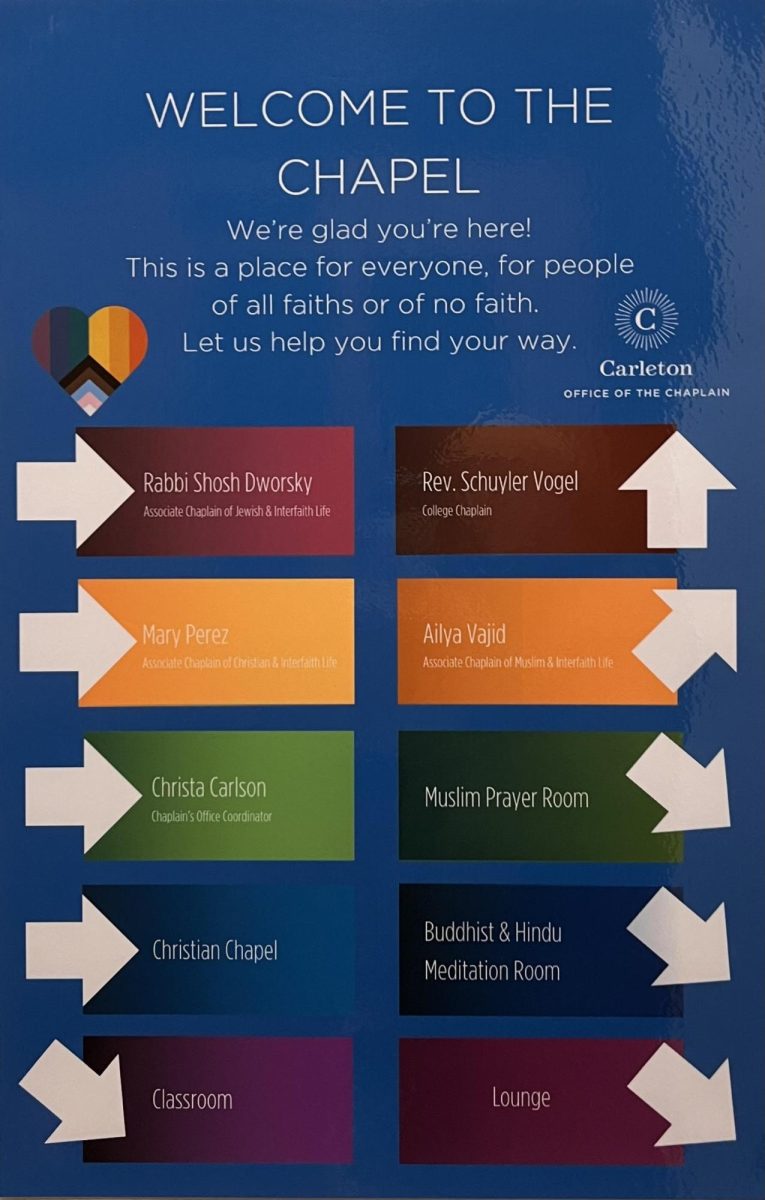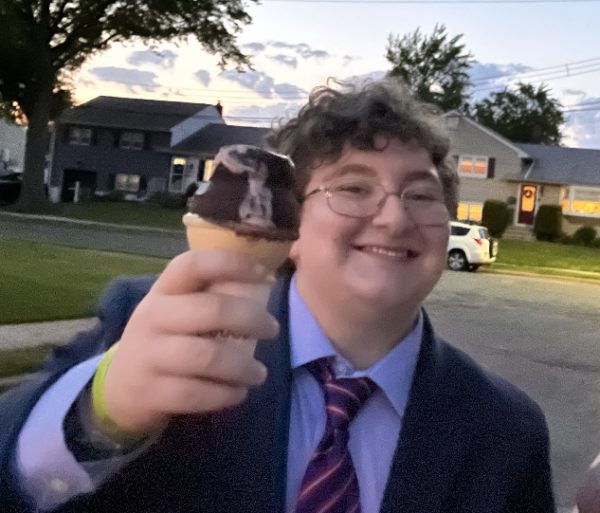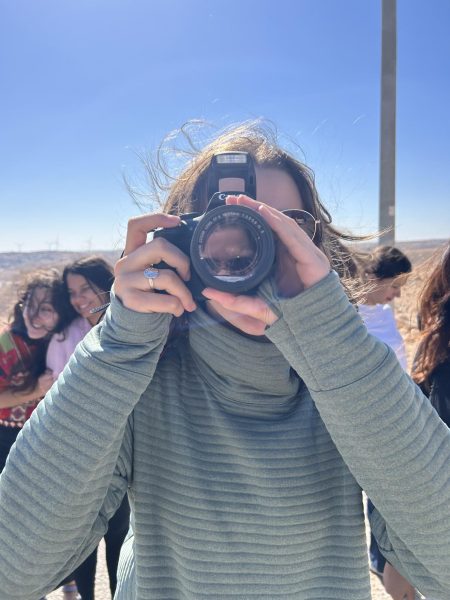One of the most active offices on Carleton’s campus is the Office of the Chaplain. The chapel hosts approximately ten events per term, encompassing a wide range of faith traditions and spiritual and cultural practices. These events span from Catholic masses to Diwali to a National Coming Out Day service, all in the same term. But how do these events make it onto the calendar, and why does the chapel hold them in the first place?
When it comes to the selection of events, the Office of the Chaplain has three main goals: exposing the student body to the rich diversity of world religions, supporting pre-existing faith groups on campus and bringing forms of faith expression to campus that students are interested in.
“We try to balance… [and] expose Carleton’s campus to religious diversity. That is a motivating factor. A second [one] is the desire to support pre-existing religious communities at Carleton, which is a different but aligned motivation for supporting religious diversity,” said College Chaplain Schuyler Vogel.
Out of all of the different religious and spiritual traditions that are represented on campus and practices that are not as well-known, there are virtually infinite possibilities for chapel events. While choosing which events to organize is not a simple or easy task, Vogel says that “we go where people are and where interest is.” This includes supporting well-established religious groups on campus as well as giving students the opportunity to explore practices and observances that they are interested in but might not know much about. Vogel says that the chapel strives to celebrate “things that we perceive as aligned with Carleton’s desire for a spiritual and fulfilling life that don’t necessarily involve a certain religious practice.” Examples of this type of event would include last term’s sound bath, or a potential tarot reading event to come in the future.
The Office of the Chaplain includes many different members of staff and the student body, including Associate Chaplains and student Chaplain’s Associates (CAs) who all have different roles in organizing both one-time and recurring programming. “All of the weekly events are either created and led by the CAs or by the Associate Chaplains. The CAs have the most influence over the weekly events,” said Chaplain’s Associate Griffin Momsen-Hudson ‘25. “Hard Questions and Foods of Faith, for example, are completely led and planned by CAs, while things like Bagels and the Book, Evensong,Transformation Tuesday or the Chapel bible study, are jointly led by students and their respective Associate Chaplain.”
While chapel staff play a role in event planning, the Office of the Chaplain makes an effort to collaborate with religious and cultural student organizations and offices around campus. Groups like the Muslim Student Association (MSA), Jewish Students of Carleton (JSC), Fellowship in Christ (FC) as well as many other religious and faith organizations, are well-established at Carleton. The chapel has the goal of making sure “they know the chapel is there for them and we support them. We want to give groups the opportunity to show their faith in the chapel space and also invite other people into their faith practice,” Vogel said.
Collaborations with cultural organizations are also important to the chapel’s role on campus because “beyond religious and spiritual life in general, we try to go where the points of cultural and religious intersection are. We think about holidays like Diwali or Lunar New Year or Día de Los Muertos that are both a deeply religious holiday and also a deeply resonant cultural holiday… What matters to us is where people are finding meaning,” Vogel said. These cultural celebrations speak to the chapel’s desire to move away from their programming being perceived as services and to move towards events that are ways for people to participate in their campus community, engage in deep questions of humanity, and make meaning for themselves. Working with non-religious organizations and other offices on campus is one part of the chapel’s steps towards a greater commitment to diversity and inclusion. “In the past, the Chapel has most often worked with student organizations, whether religious, cultural, or otherwise, but that list appears to be expanding to encompass a wider range of student groups irrespective of their connection to a specific religious or spiritual tradition,” said Garrett Pauly ‘25, a chaplain’s associate. “More than anything else, the Chapel has re-dedicated itself to making connections between and beyond different communities on campus.”
The Office of the Chaplain also makes an effort to have a presence both outside the chapel building and the events that they host. “It’s not about us needing to run things,” Vogel said. “It’s about students being able to run things and making sure nothing gets in the way of the kinds of faith expressions students want to do. Sometimes that is running services here, or sometimes it’s running services elsewhere or just engaging with student leaders about religious leadership.”
The question of whether or not an event is “successful” is not as easy to answer as counting the participants. “The work of the Office of the Chaplain should not and cannot be reduced to numerical importance… The work that we do is grounded in connection and relationship to something greater than ourselves,” Vogel said. Between a packed event that might be uninspiring, and a five-person event that is “life-changing,” Vogel said, “I would much rather have more of the latter.”
Overall, the Office of the Chaplain exists as an avenue for students of any background, tradition or belief to explore religious and spiritual practices, even if they don’t have a practice of their own. The planning of chapel events reflects that. “This is not just for people who identify as religious or spiritual,” Vogel said. “The work that the chapel does is not just for people who believe in God or people who have a clear sense of theological grounding. It’s for anyone who is wrestling with life, or being a person, or their role in this world.”














